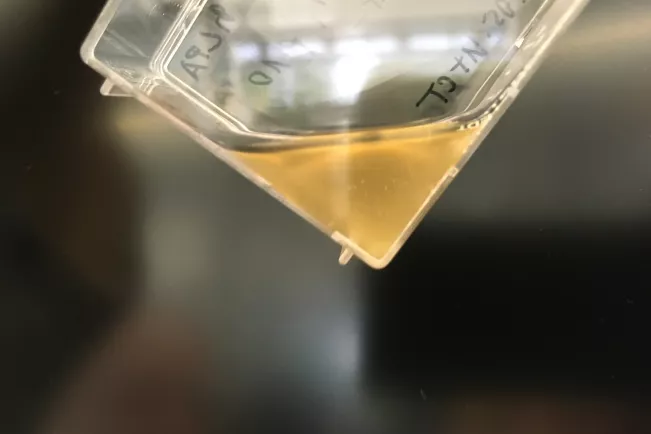Aminoacylases (Deficiencies of Aminoacylase 1 and of Aspartoacylase/ Canavan Disease)

Forschungsprojekt im Überblick

Fachbereiche und Institute
Zeitraum
01.01.2015 to 31.12.2025
Projektbeschreibung
Our research group studies rare genetic defects in metabolic pathways. We are aiming at a better understanding of pathomechanisms underlying such inborn errors of metabolism. Many metabolic diseases result in early death or severe handicaps if they are not treated in an adequate manner. Early diagnosis is a prerequisite for therapeutic approaches, which may enable normal development in some of those diseases. We continuously offer internships and thesis projects focused on analytical biochemistry (for example on the development of diagnostic tests) and on the characterization of metabolic diseases.
Following the detection of numerous N-acetylated amino acids in the patterns of urinary organic acids, we have been able to identify patients with a ”novel” inborn error of metabolism: Detailed investigations confirmed aminoacylase 1 deficiency on the enzyme level in lymphocytes and fibroblasts and in the ACY1 gene. Subsequently, wild type and mutant enzymes were studied following overexpression in HEK293 cells. Our investigations comprise also studies on aspartoacylase (aminoacylase 2). Disruption of this enzyme results in Canavan disease, a neurodegenerative disorder. Ongoing research (supported, e.g., by the DFG project 514177501) is aiming at a better understanding of the roles of aminoacylases in health and disease.
The recently published results of the collaboration with colleagues from Brazil on Disturbance of mitochondrial functions caused by N-acetylglutamate and N-acetylmethionine in brain of adolescent rats: Potential relevance in aminoacylase 1 deficiency (Neurochem Int. 2023;171:105631. doi: 10.1016/j.neuint.2023.105631) are currently freely available at https://authors.elsevier.com/c/1hybTio-v2SFy.


